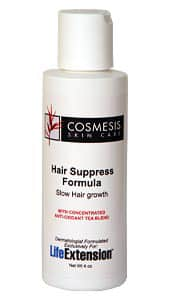| EPA (eicosapentaenoic acid) and DHA (docosahexaenoic acid) supplementation prior to colorectal cancer surgery improves the immune response and decreases the infection rate, improving patients’ outcome (Braga M et al 2002). In advanced cancer patients, EPA at doses of 18 grams is well tolerated and improves survival (Barber MD et al 2001; Burns CP et al 1999). Diets rich in omega-3 fatty acids decrease both the initiation and promotion of colon cancer (Kontogiannea M et al 2000). EPA prevents tumor cells from binding to healthy cells, as in blood vessels (Kontogiannea M et al 2000), and thus inhibits the development of liver metastasis (in animals) (Iwamoto S et al 1998). An omega-6 to omega-3 ratio of 2.5:1 reduced rectal cell proliferation in patients with colorectal cancer (Simopoulos AP 2002). The EPIC study performed in 23 centers in 10 European countries found that high fish consumption had a protective effect against colorectal cancer (Gonzalez CA 2006a). Dietary fish oil supplementation in patients with adenomatous polyps reduces rectal cell proliferation, a marker of cancer risk (Bartram HP et al 1995). In a double-blind study of 60 patients with sporadic adenomas, low-dose fish oil supplementation (2.5 grams, 5.1 grams, or 7.7 grams per day for 30 days) had normalizing effects on the abnormal rectal proliferation patterns associated with increased colon cancer risk (Anti M et al 1994). Large doses of fish oil prevent tumor growth through a free radical-mediated mechanism, while more moderate doses hinder inflammation, angiogenesis, and Ras protein activity (Grimm H et al 2002; Collett ED et al 2001; McCarty MF 1996). Mild gastrointestinal symptoms such as belching, bloating, gas, diarrhea, and a fish-oil aftertaste occur in some patients (Bruera E et al 2003; Gogos CA et al 1998). | 
Current findings published by news media worldwide on the topics of health and wellness, dietary supplements, diseases such as atherosclerosis, arthritis and stroke, and numerous other subjects of interest to those who wish to live a longer, healthier life are posted each day in Life Extension Daily News. New articles posted seven days a week under the headings of vitamins, nutrition, disease and aging cover a range of subjects, from health tips for the lay person to peer-reviewed medical journal reports. Can't visit www.lifeextension.com every day? Articles are archived under Aging, Disease, Nutrition and Vitamins (for a limited time period) to allow you to browse them at your leisure. In addition, RSS feed is available.    |















